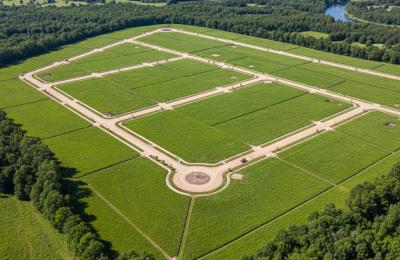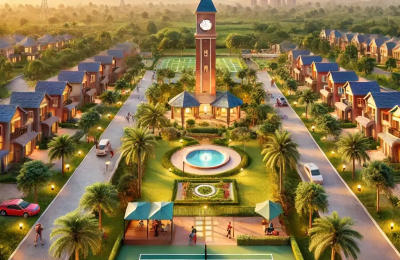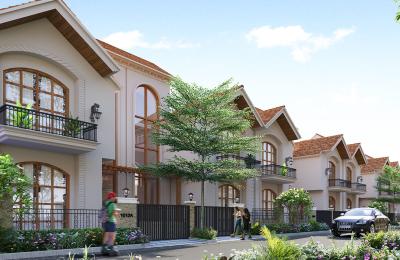Sonipat, Haryana
How Deen Dayal Awas Yojna Supports Affordable Housing in NCR
The National Capital Region (NCR) is one of the fastest-growing urban zones in India, attracting millions of people from across the country for better jobs, education, and lifestyle opportunities. However, this rapid urbanization has created a massive demand for affordable housing. Property prices in NCR cities like Gurugram, Faridabad, Sonipat, and Panipat have skyrocketed, making it difficult for middle-class families to buy homes.
To address this challenge, the Haryana Government launched the Deen Dayal Jan Awas Yojna (DDJAY) in 2016, which plays a transformative role in promoting affordable housing in NCR. Unlike conventional housing schemes, Deen Dayal Jan Awas Yojna focuses on providing residential plots at affordable prices, allowing families to build homes as per their needs.
This article explains in detail how DDJAY supports affordable housing in NCR, its eligibility, benefits, application process, and why it is one of the most impactful housing initiatives in recent times.
What is Deen Dayal Jan Awas Yojna?
Deen Dayal Jan Awas Yojna is a plot-based affordable housing scheme by the Haryana Government. It aims to encourage planned housing colonies in low and medium potential towns and cities, especially in NCR regions.
Key Features of DDJAY:
Development of 5 to 15-acre residential colonies.
Offers Deen Dayal Jan Awas Plots with sizes up to 150 sq. meters.
Allows stilt + 4 floor construction, increasing housing density.
Provides reduced external development charges (EDC) for developers.
Ensures plot registry rights, giving buyers full land ownership.
Transparent project approvals and listings through the Deen Dayal Awas Yojna List.
By offering Deen Dayal Plots, the scheme gives families the chance to own land and build homes, instead of restricting them to pre-constructed flats.
Why Affordable Housing is Crucial in NCR
Affordable housing is a pressing need in NCR because:
NCR cities face migratory pressure, with thousands moving in each year.
Real estate prices have become unaffordable for middle-class families.
Rental costs are high, forcing many to live in congested spaces.
Urban sprawl is increasing, but planned housing colonies are limited.
The Deen Dayal Jan Awas Yojna directly addresses these issues by enabling homebuyers to purchase plots at a fraction of the market price, making housing more accessible.
Benefits of Deen Dayal Jan Awas Yojna in NCR
1. Affordable Deen Dayal Plots
Compared to market rates, DDJAY offers plots at reasonable prices, reducing the financial burden on families.
2. Ownership and Flexibility
Unlike schemes that provide ready-made flats, Deen Dayal Jan Awas Plots allow buyers to design and build homes based on personal preferences.
3. Government Support
The scheme provides incentives to developers through reduced charges, ensuring more projects are launched in NCR.
4. Urban Decongestion
By encouraging development in low and medium potential zones, the scheme reduces overcrowding in central NCR areas.
5. Faster Approvals
Developers under DDJAY get fast-track project approvals, ensuring timely delivery.
6. Transparency
Buyers can refer to the Deen Dayal Awas Yojna List to check approved projects and avoid fraudulent investments.
How Deen Dayal Awas Yojna Differs from Other Housing Schemes
Feature | Deen Dayal Jan Awas Yojna | Other Housing Schemes |
|---|---|---|
Property Type | Affordable residential plots | Flats or apartments |
Flexibility | Full freedom to build as per needs | Limited customization |
Target Group | Middle-class and lower-middle-class families | EWS, LIG, MIG, etc. |
Ownership | Individual plot registry | Flat/apartment registry |
Value Appreciation | Land appreciates faster | Apartments have slower appreciation |
Government Role | Facilitator + regulator | Builder + financier |
This makes Deen Dayal Plots more appealing to NCR buyers who want long-term asset value.
Deen Dayal Awas Yojna Eligibility
To apply under DDJAY, applicants must meet the following eligibility criteria:
Must be an Indian citizen.
Haryana residents and those working in NCR get preference.
Applicant should not already own a residential plot/house in the same area.
Must fulfill income and age criteria defined by the state government.
Developers applying for colony development must have 5–15 acres of land.
The eligibility rules are transparent, and the government maintains a Deen Dayal Awas Yojna eligibility list for easy verification.
Sonipat Plots for Sale

Sonipat, Haryana

Sonipat, Haryana
Deen Dayal Awas Yojna Haryana Apply Online – Step by Step
Applying online for DDJAY in NCR is simple:
Visit the official Town & Country Planning Department, Haryana website.
Navigate to the Deen Dayal Jan Awas Yojna section.
Check the Deen Dayal Awas Yojna List of approved colonies in NCR.
Fill the application form with personal details.
Upload required documents (ID proof, address proof, income proof, etc.).
Pay the application fee.
Wait for the allotment results, which are declared transparently online.
NCR Cities Benefiting from DDJAY
1. Gurugram
Rising property costs have made flats unaffordable.
Deen Dayal Jan Awas Plots provide budget-friendly alternatives.
2. Faridabad
Industrial hub with growing housing demand.
DDJAY enables affordable plotted colonies.
3. Sonipat
Upcoming education and industrial center.
Deen Dayal Plots attract first-time homebuyers.
4. Panipat & Karnal
Known for industries and connectivity.
Affordable housing colonies under DDJAY are thriving.
These cities in NCR are seeing a real estate transformation due to DDJAY.
Deen Dayal Awas Yojna List – Ensuring Transparency
The government publishes an updated Deen Dayal Awas Yojna List, which includes:
Approved developers and colonies.
Plot sizes and locations.
Allotment procedures.
Pricing details.
This ensures that homebuyers in NCR make safe and informed investments.
Challenges in NCR Housing and How DDJAY Solves Them
Challenges:
Skyrocketing land prices.
Limited availability of affordable housing.
Unplanned urbanization leading to congestion.
Fraudulent projects in the real estate market.
DDJAY Solutions:
Affordable Deen Dayal Plots priced for middle-class buyers.
Planned colonies with amenities like parks, schools, and shops.
Transparent approval system and government oversight.
Clear eligibility rules and allotment process.
Future of Affordable Housing in NCR with DDJAY
With increasing demand, Deen Dayal Jan Awas Yojna is expected to play a central role in shaping the NCR housing market. As more developers join the scheme, buyers will have a wider choice of affordable plots, ensuring long-term urban sustainability.
The Deen Dayal Jan Awas Yojna is one of the most impactful affordable housing schemes in NCR. By focusing on plots instead of flats, it gives middle-class families the chance to own land—a valuable long-term asset. The scheme’s transparent application process, reduced charges, and government-approved project list make it a reliable choice for homebuyers.
Whether you are looking for affordable Deen Dayal Jan Awas Plots in Gurugram, Sonipat, or Faridabad, this scheme ensures that the dream of homeownership is within reach.
FAQs – How Deen Dayal Awas Yojna Supports Affordable Housing in NCR
1. What is Deen Dayal Jan Awas Yojna?
A Haryana Government initiative to provide affordable residential plots.
2. How does it help affordable housing in NCR?
It offers plots at reasonable prices in NCR cities, reducing housing costs.
3. What are Deen Dayal Jan Awas Plots?
Residential plots up to 150 sq. meters offered under DDJAY.
4. Who is eligible for the scheme?
Indian citizens, preferably Haryana residents without prior property in the area.
5. How can I apply?
Through the official Haryana housing portal under Deen Dayal Awas Yojna Haryana Apply online.
6. What is the Deen Dayal Awas Yojna List?
It is the government-approved list of DDJAY colonies and projects.
7. Is DDJAY better than PMAY?
Yes, DDJAY provides plots, while PMAY mainly provides subsidies for flats.
8. What is the maximum plot size available?
Up to 150 sq. meters.
9. Can I build multiple floors?
Yes, stilt + 4 floors construction is permitted.
10. Which NCR cities benefit most?
Gurugram, Faridabad, Sonipat, Panipat, and Karnal.
11. Are loans available for Deen Dayal Plots?
Yes, banks provide housing loans for DDJAY plots.
12. How is pricing different?
Plots are priced lower due to reduced development charges.
13. Is it safe to invest?
Yes, as long as buyers choose from the Deen Dayal Awas Yojna List.
14. What amenities do colonies have?
They include roads, drainage, parks, schools, and other civic facilities.
15. Why should buyers prefer DDJAY in NCR?
It combines affordability, flexibility, transparency, and long-term value.





